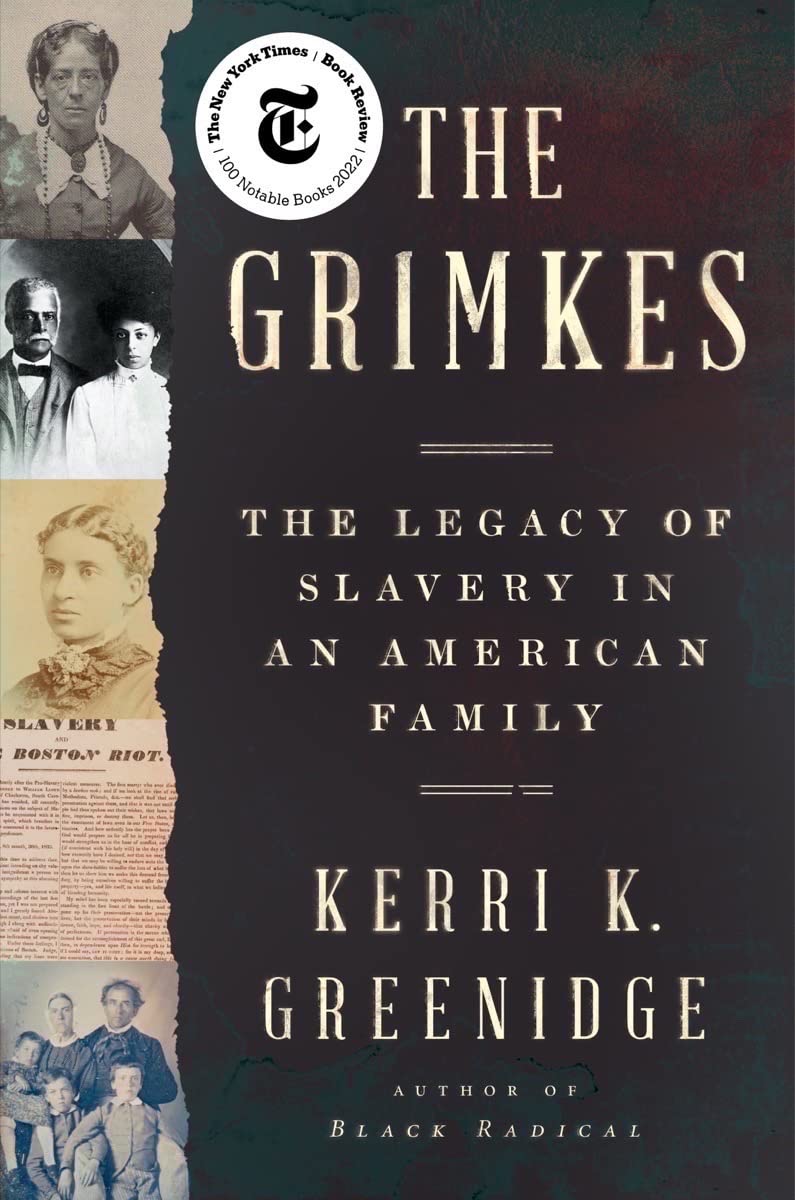Among the leading African American professionals at the turn of the 20th century were brothers Archibald and Francis Grimke. The former served as U.S. consul to the Dominican Republic, while the latter pastored one of the most prominent Black congregations in Washington, D.C. The Grimke brothers had risen from slavery to the ranks of the elite, and author Kerri K. Greenidge argues that they and their brother John were “haunted” by their blood relationship to the white family who once owned them (xxiv).
Henry Grimke fathered the three brothers with an enslaved woman, Nancy Weston, whom he did not free. Upon his death in 1852, their vindictive half-brother became their master. To complicate matters further, their aunts, Henry’s sisters, were the legendary antislavery activists Sarah Grimke and Angelina Grimke Weld. The two women became famous in the 1830s as southerners who went North to advocate for abolition and women’s rights. Three decades later, their lives took an unexpected turn when they discovered they had Black relatives.
The Grimkes is the first book to do justice to both halves of the family’s story. Greenidge’s collective biography doubles as an analysis of the nineteenth century’s racial dialectics: the Slave Power vs. the Talented Tenth, racial exceptionalism vs. racial empowerment, white privilege vs. Black fatigue, the memory of subjection vs. the suppression of memory. These tensions gripped the Grimke family, making its members beholden to the past even as they labored for progress. According to Greenidge, the family’s dynamics ultimately illustrated “the limits of interracial alliances,” even those united by kinship (xxvii). Compared to the intergenerational trauma their Black relations experienced from bondage, she argues, the white Grimkes felt largely unburdened by their family’s legacy of slaveholding.
After learning of their nephews’ existence in 1868, the Grimke sisters patronized them in both senses of the term, financing their education while finding fault with their character. As Greenidge pointedly observes: “the Grimke brothers received all of the hardness and judgement from Angelina and Sarah that the women had never poured upon their own children” (207). She considers the white women’s “benevolent racism” toward their nephews as indicative of “their lifelong tendency to see Black people as either a cause to be won or a sin for which they must atone” (xxvi, 209). Assorted interracial friendships described in the book suggest the Grimke sisters’ attitudes toward African Americans resisted such neat classification. Nevertheless, when it came to their blood relatives, it is clear from Greenidge’s narrative that Angelina and Sarah were ultimately unable to understand or repair the harm done to Archie, Frank, John, and Nancy by their own family.
If the Grimke sisters lacked the ability to empathize with their Black relatives, the Grimke brothers lacks the tools to process the psychological toll of their enslavement. John wandered aimlessly through adulthood and grew estranged from his mother and brothers. Archie and Frank went on to illustrious careers, but Greenidge argues their famous surname meant they bore the burden of representation and racial excellence even more acutely than other accomplished African Americans. They took turns raising Archie’s only daughter, the poet and playwright Angelina “Nana” Weld Grimke, whom they held to the same impossible expectations of respectability. Her family’s racial conservatism clashed with her queerness and creativity, often preventing the artist from expressing her full self. Greenidge deftly juxtaposes Nana’s inner conflict with Black elites’ struggle to shed their classist and colorist pretensions and confront the scourge of Jim Crow.
Greenidge took on an immense challenge in attempting to narrate this fraught family drama. She does an outstanding job of setting each scene so that the reader understands the racial politics of particular times and places in this century-long saga. If the Grimkes’ biographies were not enough, for context the author also incorporates the histories of the prominent Black families with whom they interfaced, such as the Fortens of Philadelphia and the Westons of Charleston. The result is a staggering feat of research and storytelling that demonstrates just how overdue a full telling of the Grimke saga has been. This collective biography brilliantly illustrates the interplay of principle, personality, and politics in activists’ lives while offering a sad reminder of the ways racism can infect reform movements. Overall, Greenidge’s book ably fulfills its subtitle by using one family’s history to get at the pernicious legacies of slavery.
John Frederick Bell is the author of Degrees of Equality: Abolitionist Colleges and the Politics of Race. He teaches history at Assumption University in Worcester, Massachusetts.
Related topics: African Americans





